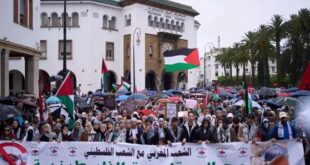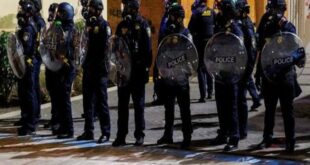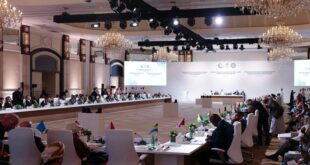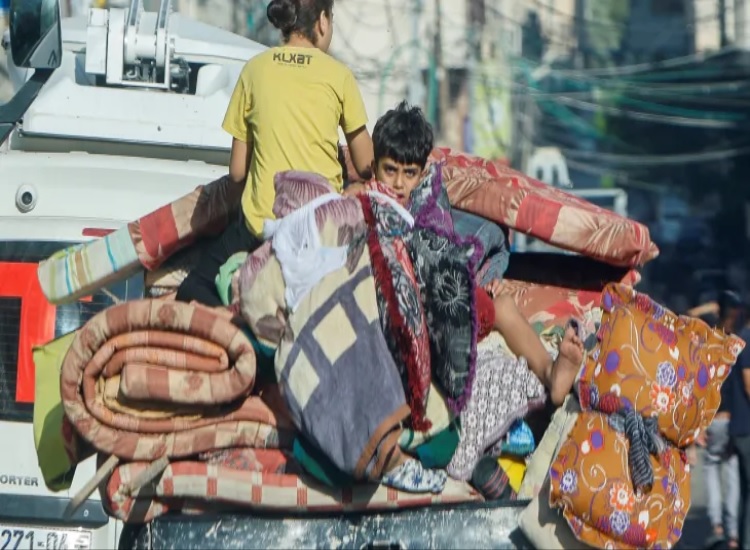
In the Gaza Strip, children’s ages are measured by how many Israeli assaults they have been through.
About half of Gaza’s population of 2.3 million is under 18, and the current offensive is Israel’s fifth major one in 15 years.
The constant trauma has resulted in four out of five children in Gaza living with depression, grief and fear, according to a 2022 report by Save the Children.
More than half struggle with suicidal thoughts and the trauma of witnessing the deaths of other children.
As the death toll mounts – about 500 children have been killed so far in seven days – parents try their best to create a sense of normalcy to help their children cope.
The current assault’s nonstop bombing has killed more than 1,500 Palestinians in total, the Palestinian Ministry of Health said.
Samah Jabr, a 35-year-old mother of four in Gaza City, is worried about her eldest son, Qusay, 13.
“He is very agitated and lashes out a lot these days. He jumps at any sound,” she said. “He can’t bear anyone speaking loudly, even if they’re joking. I try to tell him that this war will end.”
Jabr hugs Qusay as often as she can, holding him close and talking soothingly about what they will do after the war. She hopes this will give him the strength to get through this time.
“The sound of the missiles is terrifying, and our house shakes so hard,” Jabr said.
She taught her children, who never leave her side, how to spot the light that accompanies a missile so they are prepared for the deafening sound that will follow.
In the southern city of Rafah, Ahlam Wadi says her son Omar, 10, sleeps with his hands covering his ears.
“I’m worried about him,” the 30-year-old said. “I’m scared he will be damaged in the long run. I try to distract him by talking to him constantly, but he can only hear the bombs and missiles.”
Wadi and her children stay together in one room, and her husband tries to distract them by telling them about his own childhood.
“He tells them that he lived through these events before he got married and that he was very strong and not afraid,” she said.
“My second son, Saeed, who is seven, asks me whether I was also strong and fearless. I tell him I tried hard to be brave.
“I’m worried that he will have these panic attacks for the rest of his life,” she said of the attacks that grip her little boy.
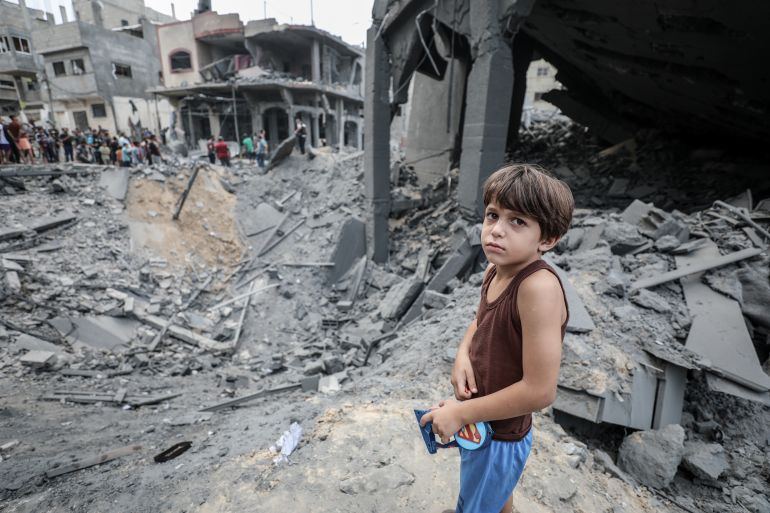
Fear of loss
Manal Salem, who lives in Gaza City, said she gets her three children to talk to their grandparents every day to tell them what they heard during the night and whether that scared them or they felt brave.
“Their grandmother tells them they must bear these difficult days because it is only temporary and that they will get through this war and be happy together again,” Salem said.
“They reply by telling their grandparents to be safe because they love them so much and want to see them again.”
Salem’s daughter Mai, who is six, has separation anxiety because her father, a doctor who works in the Al-Shifa Hospital emergency room, doesn’t come home every night.
“Mai thinks her dad will be hit by a missile whenever he’s not at home with her,” Salem said. “I keep reassuring her that he’s fine, that she must stay strong.
“I also try to calm her down by letting her talk to her dad on the phone, but sometimes he can’t respond because so many casualties are coming in.”

In Khan Younis, Rawand Khalaf tries to distract her five children, nine to 14 years old, through play.
“I sit with all of them in one room and invent games with their toys, so they will not focus too hard on the sounds of explosions,” Khalaf said.
“My kids have their toys with them all the time for comfort, and I keep telling them everything will be fine.”
Her eldest son, Aaed, tells Al Jazeera that he cannot get the images of children killed or under the rubble out of his head, much less the images of injured children screaming in pain.
“I can’t imagine how children with such small bodies can bear these huge missiles,” he said. “I can’t understand how nobody does anything to help them. The children of Gaza have a right to live.
World Opinions + Agencies




 World Opinions Débats De Société, Questions, Opinions et Tribunes.. La Voix Des Sans-Voix | Alternative Média
World Opinions Débats De Société, Questions, Opinions et Tribunes.. La Voix Des Sans-Voix | Alternative Média

